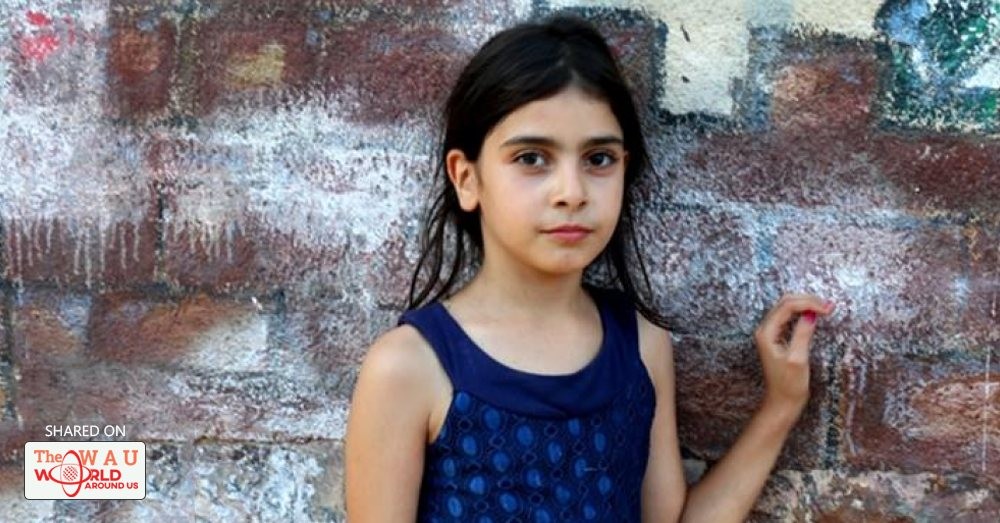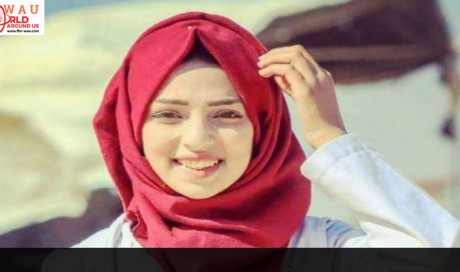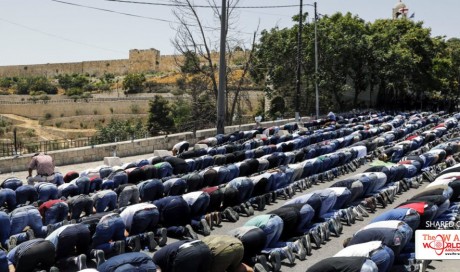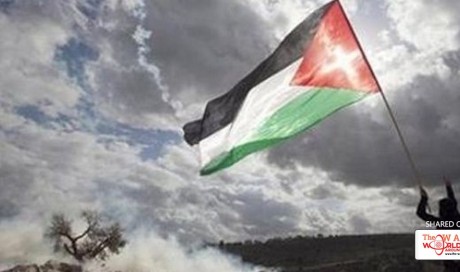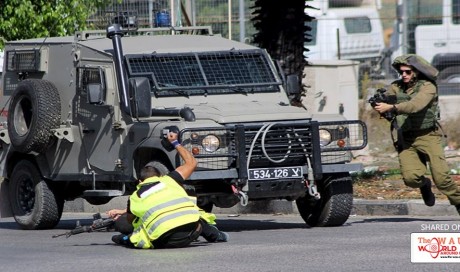Occupied East Jerusalem - Outside the al-Kurd family home, a large fig tree shades the streets of the Sheikh Jarrah neighbourhood.
When the family was evicted from the front part of their home by Israeli settlers in 2009, the tree served as a meeting point for hundreds of Palestinian, Israeli and international activists to organise nonviolent protests against Israel's colonisation of the neighbourhood.
Today, the shaded area remains empty on most days, as Israeli settlers strut confidently down the quiet streets of Sheikh Jarrah and into the Kurd family home.
"Imagine having bad neighbours who get drunk and loud all the time, but are also supported by a government aiming to systematically displace you from the land," Mohammed al-Kurd, 18, told Al Jazeera in the small courtyard between their home and the section the Israeli settlers took over six years ago, when he was just 11.

In 1956, the United Nations built houses in Sheikh Jarrah for 28 Palestinian families who fled their villages in historic Palestine after the establishment of Israel in 1948. Jewish Israelis claim that the land on which these houses were built was the site of a 19th-century Jewish community.
The Kurds are one of several families - including the unrelated Um Kamel al-Kurd family, along with the Ghawi and Hanoun families - evicted through a legal mechanism called the Legal and Administrative Matters Law, enacted several years after Israel's occupation of East Jerusalem in 1967. The law allows Jewish Israelis to claim land in East Jerusalem that is believed to have been owned by Jews before 1948.
Imagine having bad neighbours who get drunk and loud all the time, but are also supported by a government aiming to systematically displace you from the land.
In the case of the Kurd family, Mohammed's father, Nabil al-Kurd, said that the section taken over by settlers was built without an Israeli building permit, which would have cost up to $50,000. Most Palestinians in East Jerusalem, more than 80 percent of whom live below the poverty line, build or renovate their houses without a permit.
Israeli authorities have ordered the front section of the Kurd family's home demolished, but they have been unable to follow through, saying there has not been a moment when Israeli settlers were not inside.
The settlers, meanwhile, claim that they own the entire house - including the side where the Kurds live - but have yet to produce ownership documents.
In some cases, families have been evicted from their homes after Israeli courts ruled in favour of settlers.

During the eviction of the Kurd family in 2009, settlers set fire to the bed of Mohammed's three-year-old sister, Maha. As the flames grew, so did the solidarity movement, with dozens of activists sleeping in tents outside of the evicted homes.
But two years later, as the public spotlight faded, the Kurd family remained. The wall adjacent to where Mohammed sits in a recent interview is still stained with graffiti - messages of solidarity from the numerous activists who visited.
"The media was attracted to us because we could easily be framed as victims, and it was a movement that included Israeli and international activists," Mohammed said. "But now that our cases are frozen in the Israeli courts, we have become less interesting, so they left."
Nabil recalls how the first few years of the settler takeover were "very violent".
"We didn't go one day without encountering problems with the settlers. But at some point, it started fading, and the situation has become calmer," Nabil told Al Jazeera as he glanced towards a group of Israeli settlers sauntering down the driveway of their home. The area above the front door is now spray-painted with a Star of David.
Nabil says the family's relationship with the settlers is now marked by more minor acts, such as the settlers unleashing aggressive dogs on them when they venture outside, or throwing rubbish towards their side of the house.
"It's a dangerous psychology," Mohammed said. "We are tolerating them [the settlers] and enduring them. Sometimes they spew insults at us, and we spew them back, but beyond that we don't speak to each other. We just continue with our lives."
The family believes this is exactly what the settlers are aiming for: to make their presence a normal reality for Palestinians in occupied East Jerusalem.
Interviewed by Al Jazeera, one of the settlers, who gave his name as David but would not provide a last name, contended that his grandfather had a claim on the Kurds' property. "God gave me this land," he said. "This is Jewish land." He expressed hope that Sheikh Jarrah would one day become an all-Jewish neighbourhood.
In the centre of the courtyard, a line of blankets partially obscures the settlers' side of the house, hiding the window that faces the Kurds' section of the home. The blankets were hung after settlers in the adjacent part of the home stood naked at the window and made obscene gestures, Mohammed said.
"They do all these things to try and make us leave. But this is Jerusalem; it's not a village in Nablus. They can't just burn down our house like they did to the Dawabsheh family," he said. "Here, we live with embassies all around us. So they do these minor things to make us crazy every day, to try and drive us out of the house."
However, "even if they fed me pancakes every morning and greeted us with flowers, what they are doing is still wrong", he added. "They shouldn't be here at all."

Amany Khalifa, a long-standing community activist, told Al Jazeera that the Palestinians in the neighbourhood have become disillusioned by the peace movement's emphasis on a two-state solution.
"When we [Palestinians] speak about the colonisation in Sheikh Jarrah, we are not just talking about Palestinian territory within the 1967 borders; we are going back to 1948," Khalifa said.
Nabil and Mohammed both derided the one-dimensional ways in which the media portrays Palestinians, from powerless victims to heroes and angels.
"But we are just humans," Mohammed said. "We have instincts to live, eat, sleep and fight back when we are being oppressed. When the world ignores this, they are only further dehumanising us."
Mohammed shifts his gaze to the part of the house taken over by settlers, the windows equipped with metal bars and bordered by years-old protest slogans.
"I am tired of peace movements and appealing to a global community that has ignored our rights," he said. "If people only want to come here and support us when we are surrendering, or when we are weak and being dehumanised, then they shouldn't support us at all."
Share This Post

